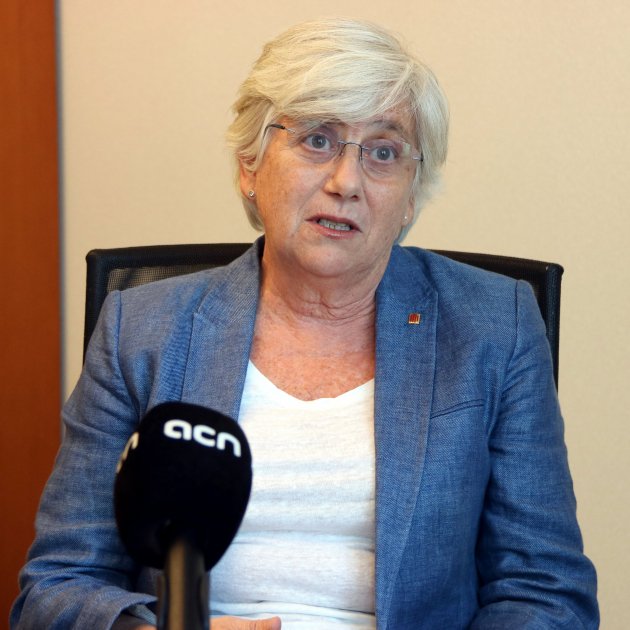The European Arrest Warrant (EAW) against the Catalan MEP Clara Ponsatí will become deactivated this Friday, due to Brexit, according to the Spanish digital newspaper El Confidencial. If Spain wants to resume its attempts to extradite Ponsatí, it will have to replace the European procedural document with an international arrest warrant, and its processing will be based on the bilateral agreements established between the United Kingdom and Spain. As Ponsatí has made her home in Scotland since 2018, the EAW against her lapses with the New Year.
This is so because January 1st, 2021 is the day that Brexit comes into full force. Because of the deal reached on December 24th, when the European Commission and the United Kingdom finally decided on the conditions for their future relationship after the current transitional period ends, profound changes come into force as the clocks strike midnight on New Year's Eve, and one of them is that of the European Arrest Warrants.
Legal sources quoted by El Confidencial state that this situation will delay the possible prosecution of Ponsatí for months, and a hypothetical extradition to Spain would only occur if the United Kingdom wants it.
In March 2020, Scottish justice paralysed the execution of the European Arrest Warrant due to the Catalan's immunity from prosecution as an MEP, which prevented her from being tried in the United Kingdom.
A justice system that "engages in politics"
Just before Christmas, Ponsatí criticized the attitude of Spanish justice in the European Parliament, and, in the presence of EU Commission president Ursula von der Leyen and Council president Charles Michel, characterised the Spanish Supreme Court as "delinquent" and argued that the EU was "blind" to its action.
"Spain has a delinquent Supreme Court that engages in politics and openly defies the European Court of Human Rights, but the EU is blind to it," Ponsatí denounced.
The MEP recalled that the Supreme Court has decided to put the pro-independence Basque leader Arnaldo Otegi on trial for the second time and for the same charges for which he had already served six years in prison, after the Human Rights court in Strasbourg ruled in 2018 that he had not had a fair trial.
"If Spain can behave like Turkey it is because the EU, you, the Council, the Commission, allow it. Double standards in Brussels are what are destroying the rule of law in Europe," she warned, looking squarely at Von der Leyen and Michel.
